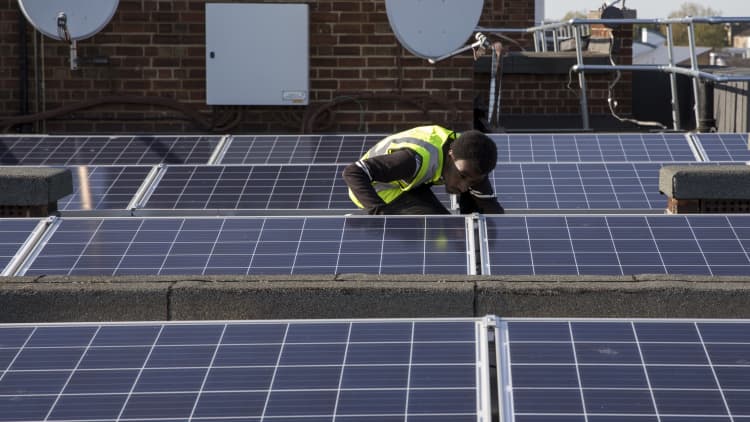
From vast offshore wind farms to huge solar parks, the planet is home to some huge renewable energy facilities. Yet smaller, local projects can have an equally important impact on people and the planet.
Repowering London is a not-for-profit which says it specializes in "facilitating the co-production of community-owned renewable energy projects."
By working with both community groups and local authorities it aims to, among other things, cut carbon dioxide emissions through the production of de-centralized, low-carbon energy; fight fuel poverty; and generate training and employment opportunities for communities.
The organization's model enables local communities to invest in solar projects. Profit from the sale of electricity to the grid is used to benefit the community and give investors an annual return. Each project also creates internship opportunities for young people in a range of fields, including IT, marketing and technology.
Agamemnon Otero is co-CEO of the organization. He told CNBC's Sustainable Energy that Repowering's vision was, "solar panels on social housing, where communities come together in one vote, one share co-operatives, and share in the energy savings and reductions and also in the idea that they are making a direct impact on global climate change."
To date, Repowering London says it has installed more than 230 kilowatts peak of community owned renewable power. While at first sight its main aim may appear to be the installation of solar panels, Otero emphasized the wide-ranging ambitions of the initiative.
"Generating a collective responsibility starts with education," he said. "It doesn't matter about ethnicity or financial income, it matters about how do you connect with… fundamental things like energy, or water, or food," he added.
"And that's what this is about. It's … learning about the benefits of solar but through that finance, IT, technical, legal, media and marketing elements, of coming together as a cooperative and then installing and owning that energy."




